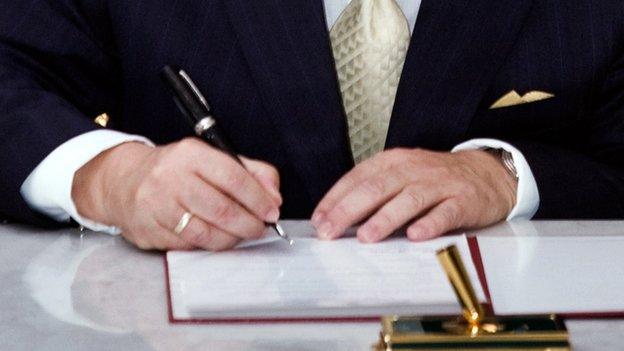UK and the EU: Referendum in a time of discontent
- Published
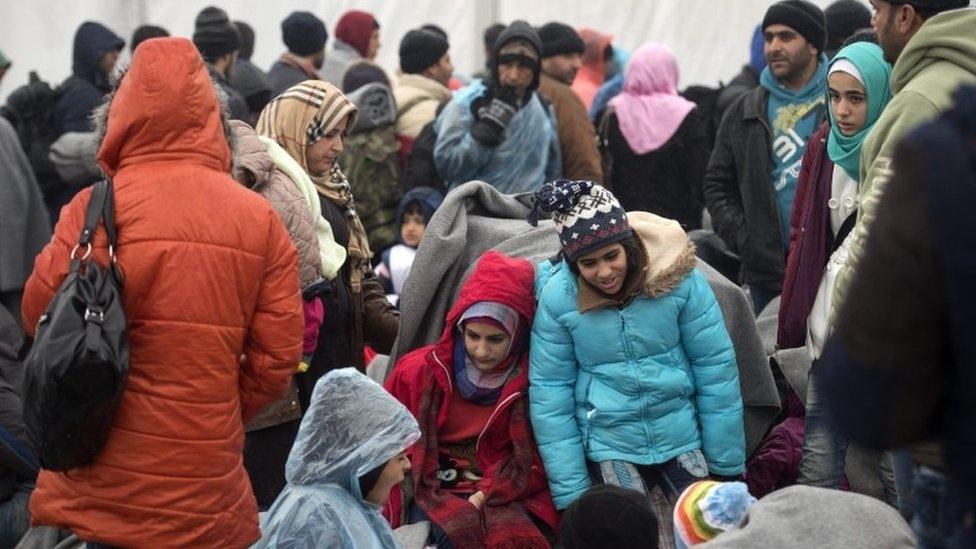
How much will fears over migration influence voters in the UK's EU referendum?
In the great and emerging debate about whether Britain should be in or out of Europe, the "ins" already have their script but there is one narrative they fear.
The plan of those who favour staying in the EU will be to focus on the economy, to demand from the "outs" what the British economy would look like outside the EU.
It is a campaign that will focus heavily on risk and security. And if the polls are close in the run-up to the referendum they foresee pressure on the pound and that will only serve to underpin the warnings from some of the heavyweights in the business community that leaving the EU would be a dangerous gamble.
What, almost certainly, will not determine the outcome of the referendum is the detail of the expected deal with the EU.
Few will study closely "emergency brakes" or "red cards" or safeguards for British interests. How they vote will be decided by instinct, by gut, by visceral feelings about the EU.
The referendum comes at a moment of voter frustration, of anger, of resentment - a new restlessness that marks the politics of Europe and the US.
In Europe, there is an anti-establishment mood, a turning away from mainstream parties. And if there is one issue above all others that stokes this mood it is migration.
I have heard several Tory MPs say that the referendum will not be about Europe directly but migration.

Those who want to stay in the EU fear the tides of spring will bring new migrants to Europe's shores and - rightly or not - will make the outcome of the referendum harder to predict.
The backdrop to this vote is the big divide of the time, two sharply differing views of the world. This is partly a caricature but it pits globalists against anti-establishment populists.
This is not to say that the ins and outs fit neatly into these camps - they don't, but the referendum will be held when these currents are proving potent in European and American politics.
Consumer voters
The globalists see a gradual withering away of the nation state, weakened in the face of global challenges such as climate change, terrorism and migration.
They count themselves as internationalists who see multiculturalism as the future, a reality which cannot be undone or reversed.
They tend to view their opponents as backward-looking, nostalgic, isolationists, old-fashioned nationalists some of whom they suspect are tinged with racism.
On the other side, the anti-establishment populists rail against a global technocratic elite that glides between capitals seemingly answerable to no-one; career politicians acting in their own interests.
The populists resent the influence of bankers; they are angry at the rise of inequality; they protest against the disappearance of secure jobs; they are agitated by the weakening of identity through migration and they fear losing their place in this fast-churning world.

Where are the dividing lines among UK voters?
Polls suggest the race is close. Excluding don't knows, YouGov's average figures are: remain in the EU 51%, leave 49%
Under-30s are most pro-EU but least likely to vote; older voters are more likely to favour Brexit and more likely to vote
University graduates, a high-turnout group, are solidly pro-EU; those with fewest educational qualifications, who are more likely to stay at home, favour leaving
Tory voters are more evenly divided than supporters of any other party, being 55%-45% in favour of Brexit
As many as 28% of UKIP voters say they would vote to stay in the EU, suggesting their support for the party "taps into a wider mood of discontent than that generated by debates about Europe"
There is no gender gap (unlike in the Scottish referendum)
Most regions divide fairly evenly for In and Out. London and Scotland are exceptions, both clearly favouring continued EU membership.

In the new age of anxiety old political ties weaken. Voters are more footloose. They give their loyalty to start-up parties and then just as quickly withdraw it. They are consumer voters drawn to the mood of the moment.
This insecurity, this feeling of loss, this helplessness in the face of forces dimly understood finds much of its focus in migration.
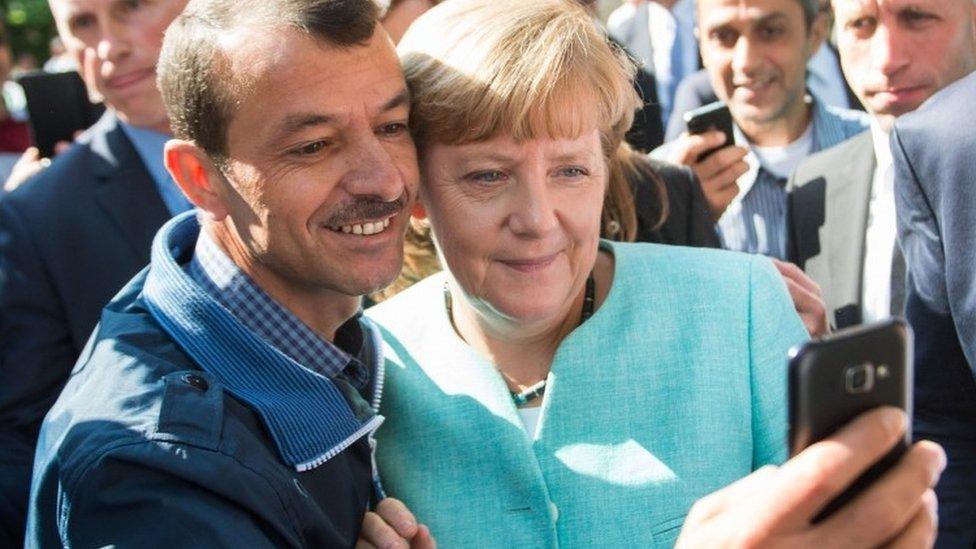
Chancellor Merkel's welcome of migrants in Germany was not universally well-received
In Europe last autumn, Angela Merkel tried to frame the debate when she accepted hundreds of thousands of migrants into Germany. She said that isolation, "sealing and cordoning yourself off in the age of the internet is an illusion". You cannot close the borders she said repeatedly.
"What we are experiencing now," said the German Chancellor, "is something that will change our continent in coming years."
And with that word "change" she stirred up stronger opposition and made starker the divide.
One of her conservative allies Horst Seehofer gave his response to change being unavoidable. "That is then a different country," he said. "And the people don't want Germany or Bavaria to become a different country."
Echoes of those doubts have sounded across Europe, particularly in Eastern Europe.
'Bad globalists'
The prime minister of Slovakia, Robert Fico, warned of the EU committing "ritual suicide" by letting in so many migrants. Viktor Orban, the prime minister of Hungary, said simply: "We do not want a multicultural society."
Marine Le Pen, leader of the far-right National Front in France, defines the new politics as a fight between what she calls "nationalists" and "bad globalists".
Others pick up on these insecurities. The former French President Nicholas Sarkozy, working on his comeback, directs his appeal to "La France de toujours" - eternal France.
This anti-establishment mood finds echoes in America on both the left and the right.
The middle class is financially squeezed and fearful and - in this primary season - courted by blowhards who insist that the certainties of the past can be reclaimed and that the complexities of the modern world are a failure of will and leadership.
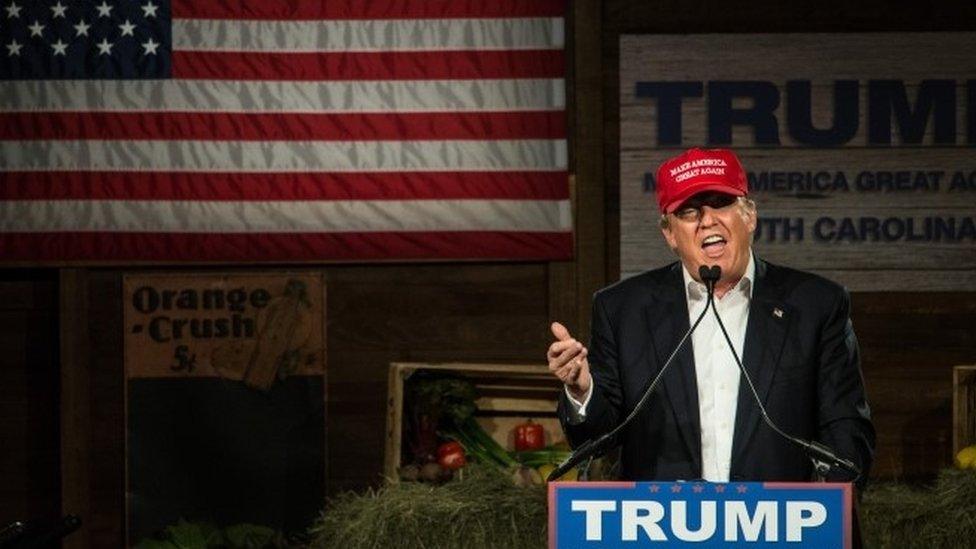
The US has seen the rise of figures from outside the political mainstream such as Donald Trump
Almost every candidate runs against Washington while anti-establishment candidates in Europe resent intrusions from Brussels.
In America some detect that the old political consensus lies fractured.
In his book The Unwinding, the writer George Packer says "no-one can say when the unwinding began, when the coil that held America together in its secure and sometime shifting grip first gave way".
What links Europe and America is the powerlessness of those in power in the face of globalisation or that is how it often appears. What many voters seem to want is control and authority.
So in the UK, the Out campaigns will base much of their appeal on promising to regain control of borders, of trade, of sovereignty.
In our shrinking world democratic parties have not found an answer to globalisation and that insecurity feeds into the rise of the anti-establishment parties.
And that is the fear of the In campaign in the referendum - that a significant number of people will see the vote as an opportunity to snub the establishment and to vent frustration.
Referendums are not always about the question asked on the paper.
- Published4 March 2016

- Published26 May 2016
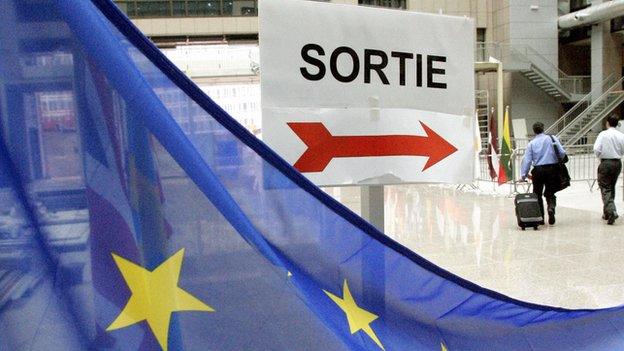
- Published30 December 2020

- Published2 February 2016
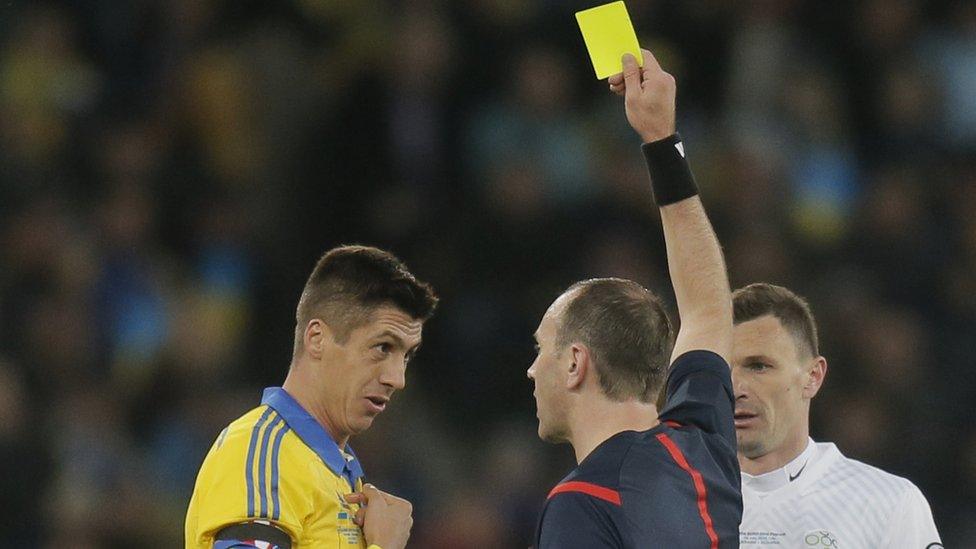
- Published1 February 2016
